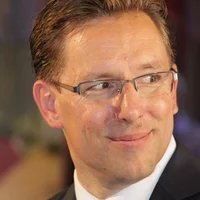AmsTErdam BiLbao cItizen drivEn smaRt cities (ATELIER)
ATELIER is a smart city project that demonstrates Positive Energy Districts (PEDs) within 8 European cities with sustainability and carbon neutrality as guiding ambitions. Amsterdam and Bilbao are the Lighthouse cities that will generate an energy surplus of 1340 MWh of primary energy, prevent 1,7 kt of CO2- and 23 t of NOx-emissions, and invest 156 million Euros to realize their PEDs. Together with district users, ATELIER will showcase innovative solutions that integrate buildings with smart mobility and energy technologies to create a surplus of energy and balance the local energy system. Bratislava, Budapest, Copenhagen, Krakow, Matosinhos, and Riga are the Fellow cities that will replicate and adapt successful solutions.
All cities will establish a local PED Innovation Atelier to co-produce locally embedded, smart urban solutions. In the ateliers, the local innovation ecosystem (authorities, industries, knowledge institutes, citizens) is strengthened, enhancing embeddedness and removing any obstacles (legal, financial, social, etc.) for implementation of the smart solutions. The Innovation Ateliers are designed to be self-sustaining and to live on after the project has ended. The ateliers are engines for upscaling solutions within the ATELIER-cities and replication to other EU-cities. ATELIER integrates a high degree of citizen engagement throughout the project, by actively involving local residents (>9000), local initiatives, and energy communities in activities to align technical solutions with citizens’ objectives and behavior. Each of the cities will develop a City Vision 2050 that creates the roadmap for upscaling the solutions in the long term.
ATELIER has the ambition to pave the way for “energy positive cities” in Europe. All ATELIER activities will be monitored (socially and technically), and lessons learned are systematically drawn and disseminated to relevant SET-plan groups, city networks, and innovation forums.
We lead the Work Package (WP) 9 ”Monitoring, Impact Assessment and Evaluation”, and will provide monitoring of the measures implemented for the PEDs, as well as impact assessment and evaluation of key performance indicators (KPIs), covering 8 main categories of aspects: environmental, economic, social, energy, mobility, spatial, general characteristics and communication. A set of KPIs is defined in close collaboration with other WPs on PED developments and measures impact of the PED, in technical, social and economic sense. KPIs will be quantified based on data collected from other WPs on building constructions, energy and water consumption, pollutant emissions, energy demand patterns, investment cost, financing of PED measures, spatial information, etc. The WP will also monitor the progress achieved, innovation aspects that arise from the project, the perspectives of citizens, such as the changes that residents and stakeholders experience under the transformation to a PED, their inputs and potential changes on behaviours. Life cycle perspectives will be incorporated in the impact assessment in order to address the issue of burden shifting from one sector to another. The approach will facilitate applying the monitoring and impact assessment approaches to the Fellow cities, and shed light on possible roll out of PED measures in a broader range of other European cities.
Finally, the Energy Economics Group is a contributor to WP 2 ”City Vision 2050”. In this WP, we support the development of long term energy planning tools for guiding urban energy transition in the demonstrator and fellow cities .
Reports
Work Package 9
Deliverable 9.1: Repository of definitions of terms, key characteristics archetypes, and a set of KPIs.
Project details
Duration: 2019-2024
Funding: H2020-LC-SC3-2019-ES-SCC
Type of action: IA
Proposal number: 864374
Researchers
Scientist
My research focuses on development and application of energy-economic models for energy and climate change mitigation policies. I have expertise in scenario development, energy transition, clean mobility, energy policy, etc.
Info
Twitter: https://twitter.com/atelierh2020?lang=en
Project Website: https://smartcity-atelier.eu/



